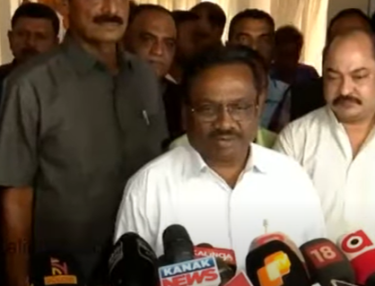
Senior Biju Janta Dal (BJD) leader Saluga Pradhan was elected unopposed as the deputy speaker on November 21. The Odisha Assembly now boasts a remarkable combination of leadership, with a Dalit speaker and a tribal deputy speaker. This diversity is further emphasized by Pradhan's Christian background, representing the Udayagiri constituency in Kandhamal district—a region marred by the worst-ever anti-Christian violence in 2008, claiming the lives of more than 100 Christians.
“We welcome this move,” said Bishop Biswajit Pani from Bhubneshwar, Odisha. “We are thankful to Chief Minister Naveen Patnaik for considering Mr. Saluga and giving him a seat,” he added.
The two-time tribal MLA from G Udayagiri constituency in Kandhamal district filed his nomination paper on Monday, emerging as the sole contestant for the prestigious post. Speaker Pramila Mallik officially declared Pradhan elected uncontested, marking a significant moment in the state's political landscape. His election follows the resignation of Rajanikant Singh on November 8, citing personal reasons.
Chief Minister Patnaik extended his congratulations to Pradhan, emphasizing the importance of upholding the dignity of the assembly as a pillar of democracy. “The assembly is an exalted pillar of democracy, all of us should uphold the dignity of this august House by our conduct. I request all our honourable members to extend their support and cooperation wholeheartedly to the deputy speaker in discharging his duties,” said Patnaik to the media.
Expressing his commitment, Pradhan stated, “I will try to conduct the proceedings of the House smoothly. I will respect the opinions of members of both ruling and opposition parties.”
Senior Congress MLA Dasarathi Gamang and BJP chief whip Mohan Majhi, both tribals, congratulated Pradhan and pledged their cooperation. However, Christian leaders expressed scepticism about the impact of Pradhan's election on the plight of indigenous people, noting the challenges of navigating party politics.
Bishop Pani highlighting the plight of the Christian community told Christian Today, “For Christians there is no Minority Commission in the government where we can voice our grievances, and that should be done.”
In response to the concerns, Father Ajay Singh of the Cuttack-Bhubaneswar archdiocese told Christian Today that he was not very excited about the news.
"This is not the first time a Christian has become an MLA, but they have never raised issues of the Christian minority. So far, they have been neutral. They have been more accountable to the party rather than the people,” said Father Ajay Singh, a Catholic priest, who has been actively involved in the fight for justice, relief and rehabilitation of the Kandhamal carnage survivors of 2017-18.
Father Singh who hails from the same area as Pradhan added, “It seems more of a political move rather than a real representation of the community, because Saluga Pradhan is an Adivasi (tribal) as-well-as a Christian. They (the political party) have played a dual card to gain favour (vote bank) of both the Adivasi community and the Christian community.”
The Kandhamal district, where Pradhan hails from, witnessed the worst anti-Christian riots that India has known, in 2008 following the assassination of Hindu Swami Laxmanananda Saraswati. Tribal Christians faced massive violence in at least 14 districts of the state after Hindu groups blamed the Swami’s murder on the Christians. The violence that ensued lead to the destruction of over 300 churches and displacement of at least 55,000 people.
Odisha, known for its diverse tribal population, comprises more than 62 tribal groups, forming nearly 23 percent of the state's population. The ruling BJD - an Indian regional political party with great influence in the state of Odisha focuses on tribal voters ahead of the 2024 twin polls adds another layer of significance to Pradhan's election.
This development coincides with the visit of India’s first tribal President Droupadi Murmu to her home district Mayurbhanj in Odisha. The nomination of Murmu by the BJP aims to secure tribal votes in the upcoming polls. Tribal people, along with Dalits, constitute over 60 percent of India total Christian population.




